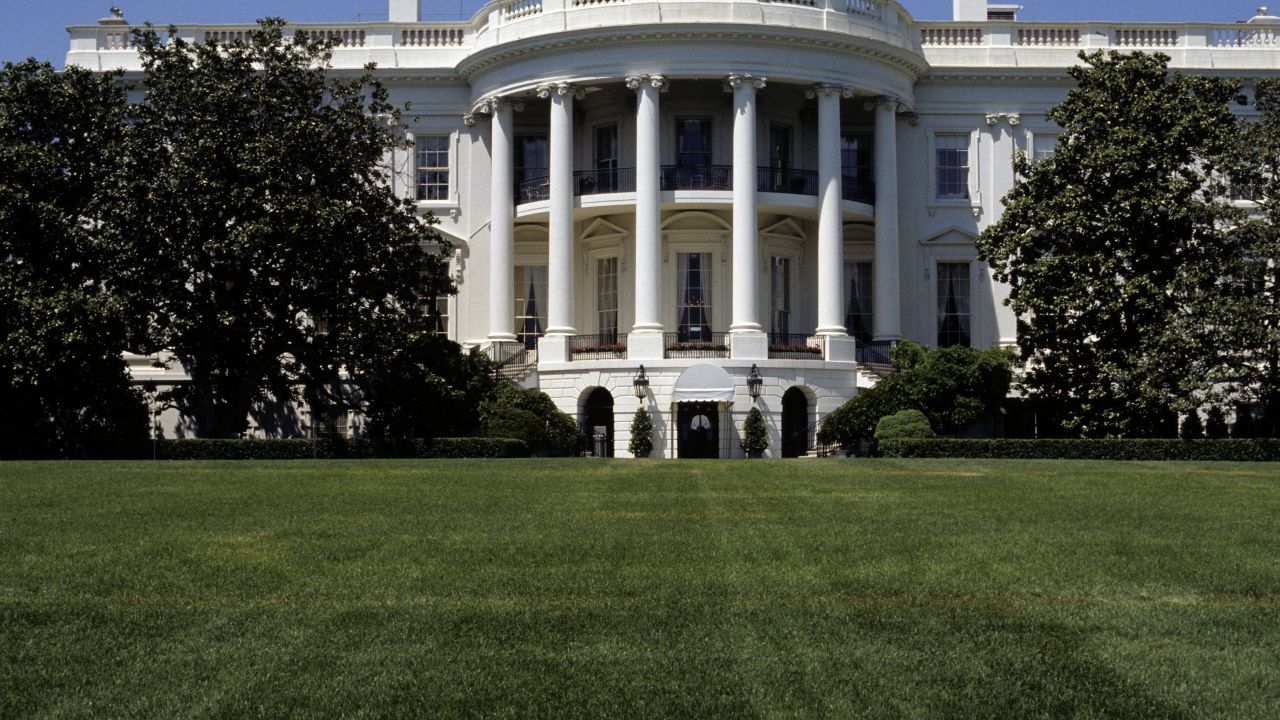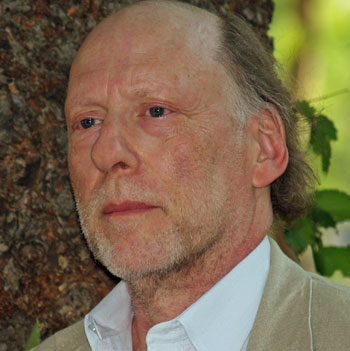
The White House (Photo by Santi Visalli/Getty Images)
Is this presidential race anything more than a chronicle of depravity? Is it about anything more than race hatred, emails, the deportation of millions, Benghazi, the alt-right, the founding of ISIS, the building of walls and the finances of Ukraine, the insults directed at a former prisoner of war and the parents of a soldier killed in another war, the encouragement of mob rule and the donors to the Clinton Foundation?
The reporting and excavation have to be done. The consequences of this election will be immense, and often enough a scandalous blurt is revealing. The Trump campaign qualifies as an emergency, and journalists who don’t know it and say it and explore its dimensions are cheating the public.
Yet one of the depravities that follows from Donald Trump’s efforts to convince America to take him seriously is that those depravities demand so much attention. A huge price is being paid for all the space and time devoted to the necessary exposés.
That price is nothing less than skilled reporting to help voters evaluate the candidates’ proposals. This may sound old-fashioned, but elections determine the direction of government, and government affects people’s lives. If the candidates’ proposals are not laid out and rationally questioned, not only does ignorance flourish, but the candidates are unable to build mandates to implement what they propose when the moment comes to take office.
Currently, the outrages, almost all from Camp Trump, come so thick and fast that journalists pile on, distracted by their excitement, justifiable as it often enough is. (I am not immune to the temptation.) Who wants to cut back reporting on the latest trampling of truth and decency, the latest insulting travesty of political speech, to issue forth from the loud mouth of the Golden Boy of Fifth Avenue? Who wants to bother much with what the next president proposes to do once she or he crosses the White House threshold unless the issue has exploded to firestorm proportions?
Not that this pattern of campaign by distraction is entirely new. Two obvious truths about the American campaign norm bear restating: (1) Determined candidates run smoke rings of evasion around the issues of the time. (2) Political journalists allow, or encourage them to do so. These practices have hardened into a tradition. Routinely, the dominant theme at virtually every moment has been who’s ahead, who’s behind, who’s gaining, how tactics are and are not changing. Handicapping the horse race has been the dominant pursuit of political journalists as long as I’ve been paying attention to elections. I’ve been writing about the dreary results in various publications every four years since 1980.
That was the year, you may recall, when candidate Ronald Reagan said, “Trees cause more pollution than automobiles do.” I was hardly alone that year in noting Reagan’s artful dodging and the way journalists routinely gave him a pass. For Reagan had a long record of expressing himself on political issues, but his past record might as well have been sealed away in a vault. For years he had been writing weekly columns and giving radio talks on all manner of issues. Yet throughout 1980, not a single mainstream reporter thought them worthy of journalistic notice. Very few reported on how Reagan’s handlers handled his press “appearances.” I remember vividly a marvelous, exceptional piece by Maureen Orth, in the Village Voice, revealing that reporters, frustrated at Reagan’s elusiveness, went to a tarmac somewhere, propped up a painting of Reagan and interviewed it for laughs. (Unfortunately I can’t locate her piece online to let readers laugh for themselves.)
It was left to the excellent Ronnie Dugger, four years after Reagan’s first victory, to pore through and report (in a book and in The Nation) on Reagan’s radio transcripts from 1975, 1978 and 1979, when he was broadcasting for five minutes a day, five days a week and also writing a column syndicated in 100 newspapers. Despite the relative brevity of his political life, there was plenty of material lying around to help a voter assess his outlook.
I remember ranting to a 60 Minutes producer about the above in 1980. “I know,” he said wearily. “We talk about it all the time. But we can’t figure out how to do things differently.”
So what’s developed differently over the past 36 years, aside from the sleazy and consequential advertising campaigns featuring Willie Horton and “Swift Boat Veterans for Truth” and the meteoric rise (and belatedly apologetic fall) of Lee Atwater? A fact-checking industry, for one thing — a good development. Statements and ads regularly go under the microscope, sometimes in real time — even, at times, on CNN’s chyron. Granted, fact-checking is a laborious business, even with Google’s help. Fact-checking must be one of America’s growth industries, and long may it be in the business of hiring, whatever the burden.
It’s not the fact-checkers’ fault that this year so many grotesque distortions have been uttered, the liars’ share of them by Mr. Trump, that fact-checking has encroached upon the space that otherwise have been taken up with color commentary.
But back to those neglected issues. Let’s pause for a moment on questions of workers’ rights. The eclipse of unions in an age of union-busting — and the rigging of union elections to favor management — are not just injustices but causes of wage stagnation and the collapse of the middle class.
But overwhelmingly the economic issues that have attracted attention in the campaign over recent months are trade deals and tax brackets. Both are important, but neither is exhaustive. In the meantime, Hillary Clinton has endorsed a number of significant economic positions virtually unnoticed. For the present, I’ll mention only three:
- She proposes to offer tax credits for businesses that hire apprentices. She endorses job training. Questions: How new are her proposals? How many hires does she anticipate? What do employment experts assess the effects of such programs? Candidates have been endorsing job training to the eyes-glazing-over point for decades. Why haven’t they been more effective? What will she do differently?
- On jobs, she proposes “bold investments in infrastructure, manufacturing, research and technology, clean energy and small businesses” to “create millions of good-paying jobs.” Question: How would workers displaced by the shutdown of manufacturing benefit? How would they find out about the new jobs?
- On unions, she proposes to “restore collective bargaining rights for unions and defend against partisan attacks on workers’ rights.” Question: Will any reporter ask why Canadian workers, as much affected by globalization as Americans, are unionized at a rate roughly triple the US rate? (Hint: It has to do with the difference between Canadian and American laws and regulations.)
These questions are only for starters. They’re not hard to come up with. One might, in a normal race, pray that an investigation of views, and the reasons the candidates hold them, might hold a candle to the horse race in sheer volume of coverage. Even then people holding old-fashioned ideas about the role of public discussion in a democracy would likely end up disappointed. Still and all, some journalists would come to feel proud that they did their duty to help the people make more informed choices.
In coming weeks, I hope to address such other questions as the candidates’ views on nuclear weapons; on crash programs to reduce carbon dioxide and methane emissions in electricity, industry, transportation and building; on anti-discrimination enforcement and the crisis in policing; on the Supreme Court—to name only a handful.
It would surely help elicit some answers to such questions if Clinton would hold press conferences. But then we would have to see if reporters would show one-tenth as much interest in her economic proposals as in the server she installed in Chappaqua.




